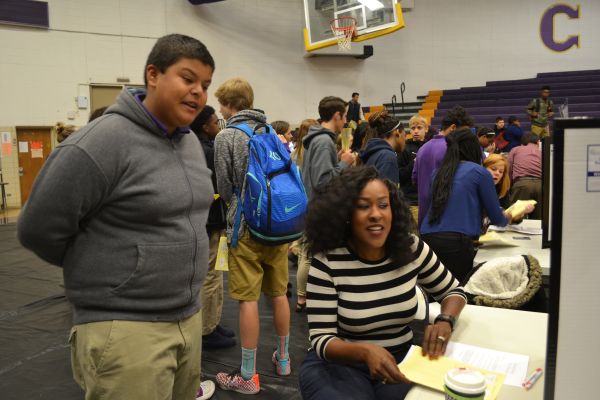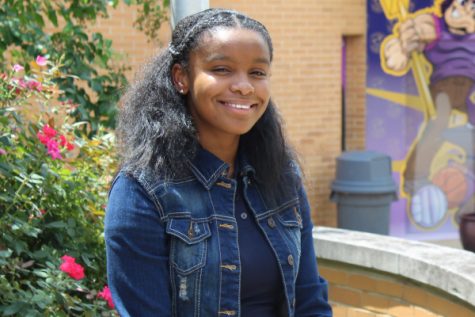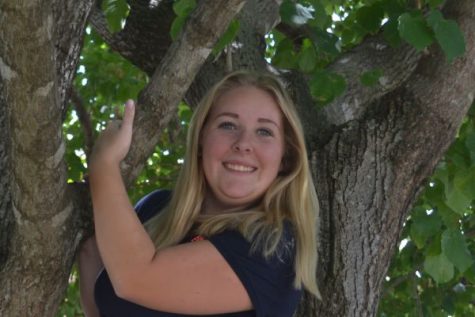Central High Freshmen Get A Reality Check

FRESHMEN STUDENTS GET A REALITY CHECK — Central High freshmen check-in with various life scenarios to get a “reality check.”
November 15, 2016
Last Friday, Central’s freshman were called into the gym to participate in a “reality check.” Each student received a worksheet that described a hypothetical life situation. They were then asked to keep their predetermined occupation and family information in mind as they visited the booths that were set up, and purchased various items, acting as the head of their household.
“I now realize that I have to work harder in the future than I thought,” revealed Abby Young, a freshmen at Central High School.
Students had a monthly salary ranging from a little less than $1,000 to around $3,000. Freshman with a higher income started out thinking that they would have enough money to buy whatever they wanted, but after a few mandatory purchases were made, their assumption proved to be incorrect.
Brandon Henderson and Abby Young both agreed that choosing between the Hybrid car and the fifty dollar bus pass was quite difficult.
“I started to get the Hybrid, but then I realized it only left me with $500, and I hadn’t even bought a house yet,” admitted Young.
It was necessary for everyone that bought a house to also pay for utilities, and for anyone with children to spend money on childcare.
Each student began the session with a different job from their peers. For example, Kaitlyn Lewis was an electric engineer that made $2,375 a month and Archie Taylor had a salary of $2,000 as a mechanic. A radio show host and an auto body repairman are among the countless other occupations one may have had.
“I was an actor that made $2,300 monthly with a child and a stay at home wife,” recounted Jacob Sylman.
Another factor that affected what students bought was their family details. Some students had a spouse, while others were single parents, or had twins to take care of. Ideally, there would be two parents, each with their own source of income, to better support a family and all of the expenses that come with that responsibility. Unfortunately, most of the freshman had to go back to school and apply for another job to earn more cash.
“This is teaching me not to have kids or drop out of school,” admitted Jaheim Williams, “I can’t afford any insurance! I need it for the children, but I can’t get it because of the children!”
Very few people got the chance to visit the “Just For Fun” booth to plan a date, or family vacation. In spite of that, those who used their allowance wisely got to walk away with money left over. Kaitlyn Lewis managed to save $450 and Archie Taylor had $200 left.
This “reality check” ultimately taught students to make sure they have a solid plan before going out into the real world. Now the freshman understand how much hard work and sacrifices goes into sustaining one’s self . Many will reconsider all the things they take for granted, and thank their own parents or guardians for all they do to support them. This simulation will also help students start deciding what career they would like to pursue in the near future, and further their education.





